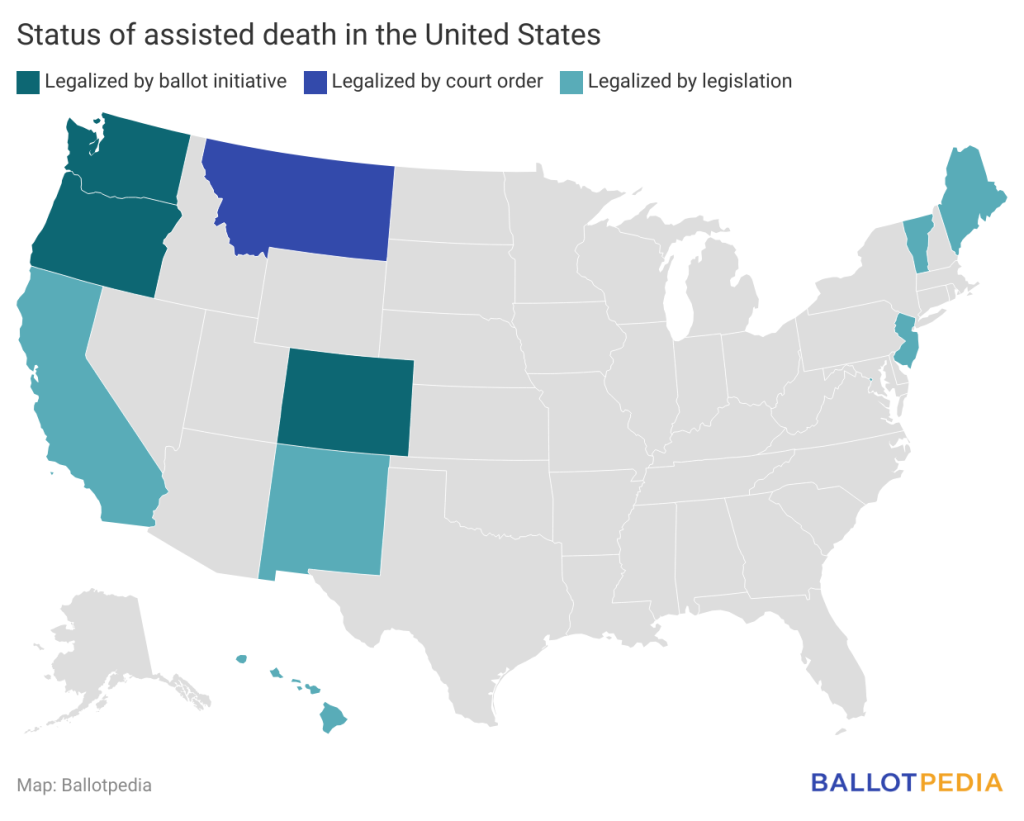Voters in West Virginia will decide on a constitutional amendment to prohibit people from participating in “the practice of medically assisted suicide, euthanasia, or mercy killing of a person.” While several states have voted on ballot measures to allow for assisted death, also known as assisted suicide or aid-in-dying, West Virginia is the first state where voters will decide to prohibit the practice in a state constitution. The constitutional amendment will appear on the ballot as Amendment 1 on Nov. 5, 2024.
In the West Virginia State Legislature, the constitutional amendment was introduced as House Joint Resolution 28 (HJR 28). The House voted 88-9 to pass HJR 28 on Feb. 15. The Senate voted 28-4 to pass HJR 28 on March 9. As the Senate amended HJR 28, concurrence was required in the House. Later on March 9, the House voted 88-10 to refer the constitutional amendment to the ballot.
Danielle Pimentel, Policy Counsel at Americans United for Life, said, “This overwhelming passage is an encouraging step toward the constitutional protection of the elderly and disabled in West Virginia. We look forward to other states following the example of these courageous legislators.”
House Del. Joey Garcia (D-76) said that he felt the amendment was unnecessary. He said, “Just because you agree with a policy does not mean that it reaches to the standard to put on a constitutional ballot.”
As of March 2024, assisted death was legal in 10 states—California, Colorado, Hawai‘i, Maine, Montana, New Jersey, New Mexico, Oregon, Vermont, Washington, as well as Washington D.C. The practice was legalized via ballot measure in three of these states—Colorado, Oregon, and Washington.
In 1991, Washington was the first state to vote on assisted death, when voters rejected Initiative 119. Oregon was the first state to legalize the practice in 1994, when voters passed Measure 16. The Oregon State Legislature asked voters to repeal the initiative three years later with Measure 51, but voters rejected it. The most recent state to vote on assisted death was Colorado, when voters approved Proposition 106 in 2016, which made assisted death legal for patients with a terminal illness who receive a prognosis of death within six months. Voters in California, Michigan, Maine, and Massachusetts have rejected ballot measures to authorize the practice.



